Oleksandr Zinenko
MLIR: A Compiler Infrastructure for the End of Moore's Law
Mar 01, 2020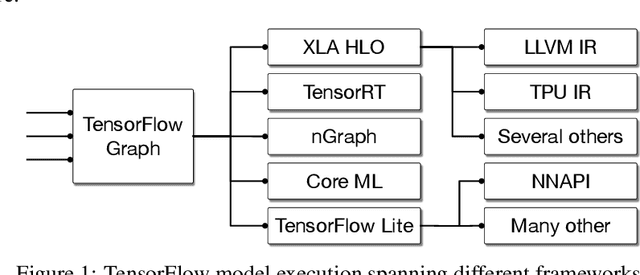
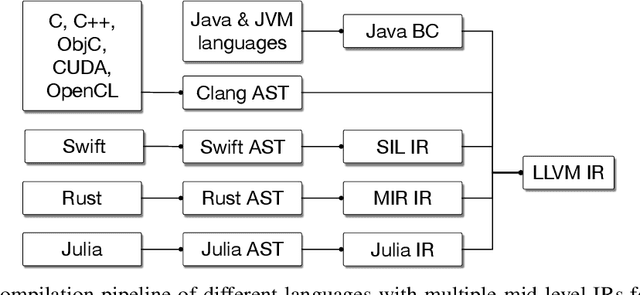
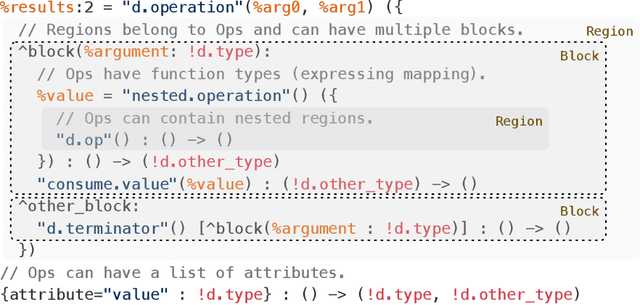
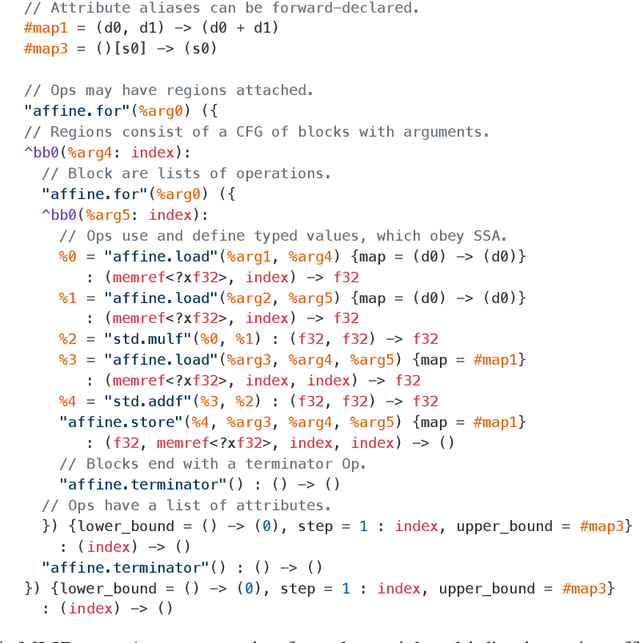
Abstract:This work presents MLIR, a novel approach to building reusable and extensible compiler infrastructure. MLIR aims to address software fragmentation, improve compilation for heterogeneous hardware, significantly reduce the cost of building domain specific compilers, and aid in connecting existing compilers together. MLIR facilitates the design and implementation of code generators, translators and optimizers at different levels of abstraction and also across application domains, hardware targets and execution environments. The contribution of this work includes (1) discussion of MLIR as a research artifact, built for extension and evolution, and identifying the challenges and opportunities posed by this novel design point in design, semantics, optimization specification, system, and engineering. (2) evaluation of MLIR as a generalized infrastructure that reduces the cost of building compilers-describing diverse use-cases to show research and educational opportunities for future programming languages, compilers, execution environments, and computer architecture. The paper also presents the rationale for MLIR, its original design principles, structures and semantics.
Tensor Comprehensions: Framework-Agnostic High-Performance Machine Learning Abstractions
Jun 29, 2018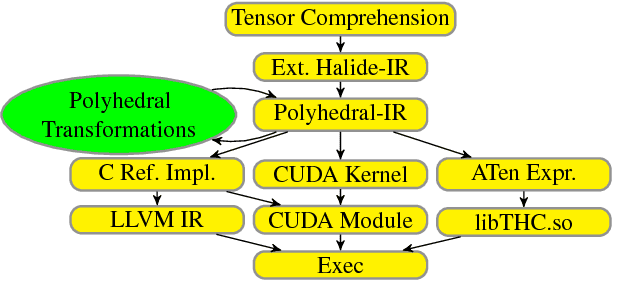
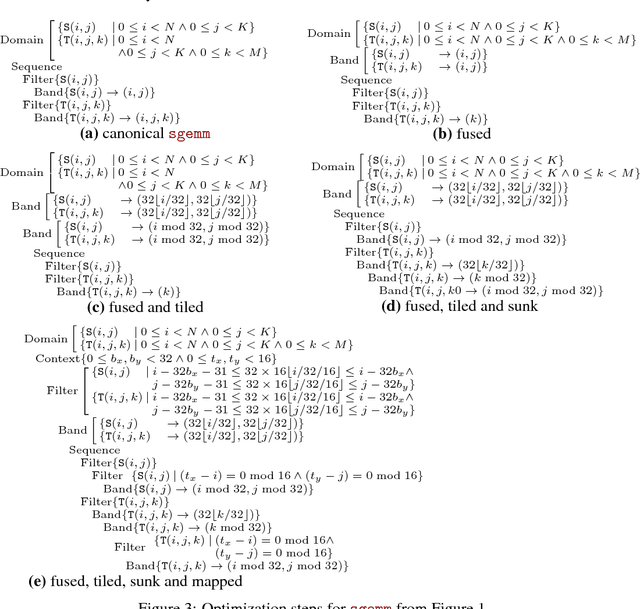
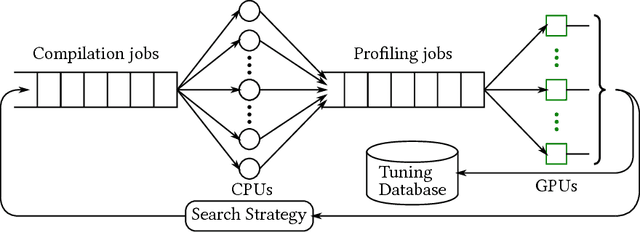
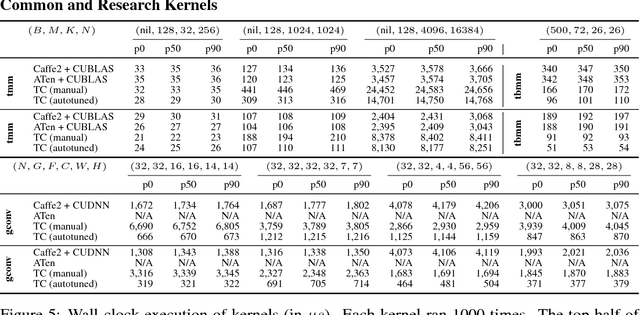
Abstract:Deep learning models with convolutional and recurrent networks are now ubiquitous and analyze massive amounts of audio, image, video, text and graph data, with applications in automatic translation, speech-to-text, scene understanding, ranking user preferences, ad placement, etc. Competing frameworks for building these networks such as TensorFlow, Chainer, CNTK, Torch/PyTorch, Caffe1/2, MXNet and Theano, explore different tradeoffs between usability and expressiveness, research or production orientation and supported hardware. They operate on a DAG of computational operators, wrapping high-performance libraries such as CUDNN (for NVIDIA GPUs) or NNPACK (for various CPUs), and automate memory allocation, synchronization, distribution. Custom operators are needed where the computation does not fit existing high-performance library calls, usually at a high engineering cost. This is frequently required when new operators are invented by researchers: such operators suffer a severe performance penalty, which limits the pace of innovation. Furthermore, even if there is an existing runtime call these frameworks can use, it often doesn't offer optimal performance for a user's particular network architecture and dataset, missing optimizations between operators as well as optimizations that can be done knowing the size and shape of data. Our contributions include (1) a language close to the mathematics of deep learning called Tensor Comprehensions, (2) a polyhedral Just-In-Time compiler to convert a mathematical description of a deep learning DAG into a CUDA kernel with delegated memory management and synchronization, also providing optimizations such as operator fusion and specialization for specific sizes, (3) a compilation cache populated by an autotuner. [Abstract cutoff]
 Add to Chrome
Add to Chrome Add to Firefox
Add to Firefox Add to Edge
Add to Edge